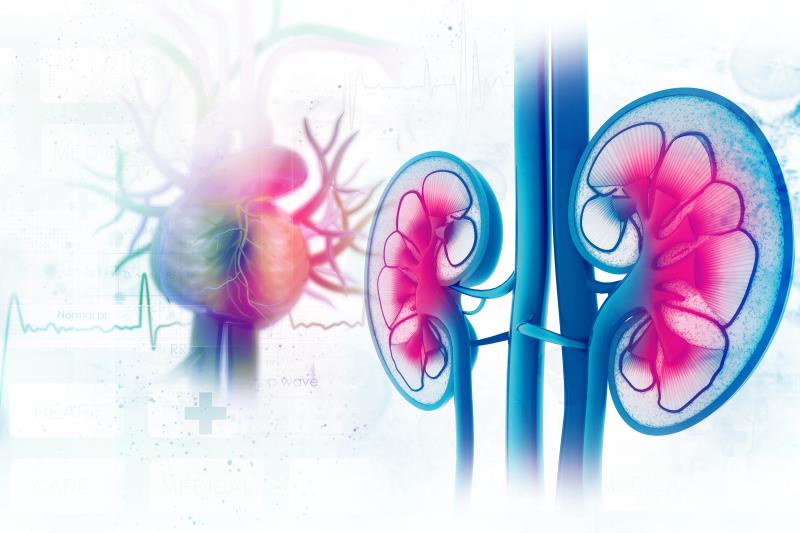
The risk of acute kidney injury (AKI) appears to be lower among patients with type 2 diabetes mellitus receiving sodium-glucose cotransporter-2 inhibitors (SGLT2is), suggest the results of a systematic review and meta-analysis.
“SGLT2is reduced the odds of suffering AKI with and without hospitalization in randomized [controlled] trials (RCTs) and the real-world setting despite the fact that more adverse events (AEs) related to hypovolemia are reported,” the researchers said.
A systematic review and meta-analysis was conducted to examine the effect of SGLT2is on renal AEs in RCTs and controlled observational studies. The researchers accessed PubMed, Embase, Cochrane and ClinicalTrials.gov with date restriction until 27 September 2019. They used a standardized data form to extract data and resolved any discrepancies by consensus.
Four observational studies with five cohorts (n=83,934) and 112 RCTs (n=96,722) with a minimum follow-up of 12 weeks and available information on at least one adverse renal outcome (eg, AKI, combined renal AE or hypovolemia-related events) were included in the meta-analysis.
Thirty RCTs reported a total of 410 AKI-related serious (S)AEs. SGLT2is reduced the occurrence of AKI by 36 percent (odds ratio [OR], 0.64, 95 percent confidence interval [CI], 0.53–0.78; p<0.001). In 41 trials, a total of 1,089 AKI events of any severity (AEs and SAEs) were reported (OR, 0.75, 95 percent CI, 0.66–0.84; p<0.001). [PLoS Med 2019;16:e1002983]
The efficacy of empagliflozin, dapagliflozin and canagliflozin on AE and SAE was comparable. Hypovolemia-related AEs more commonly occurred in patients treated with SGLT2i (OR, 1.20, 95 percent CI, 1.10–1.31; p<0.001).
In the observational studies, reported AKI-related events stood at 777. Patients receiving SGLT2is, however, had a reduced risk of AKI (OR, 0.40, 95 percent CI, 0.33–0.48; p<0.001).
“We suggest that a randomized placebo-controlled study should be performed in diabetic patients undergoing a medical procedure with a high risk of AKI (eg, cardiothoracic on-pump surgery) to demonstrate the beneficial effects of SGLT2 inhibition on mechanisms of AKI,” the researchers said.
AKI is characterized by an acute worsening of the kidney functions and typically staged according to the increase in serum creatinine or decrease in urine output for 2–7 days, they explained. It is associated with short- and long-term mortality, chronic kidney disease, and end-stage renal disease.
No mechanistic explanation is currently available on the beneficial effect of SGLT2is in preventing AKI. However, two animal studies showed that administration of an SGLT2i reduced ischaemia-reperfusion injury and AKI. [Kidney Int 2018;94:524-535; PLoS ONE 2016;11:e0158810]
“Because sodium transport is ATP-dependent, it has been postulated that a reduction in sodium reabsorption through SGLT2is in the S1 and S2 tubular segments leads to reduced tubular oxygen consumption,” the researchers said. [Intern Med 2018;57:2105-2114]
The current study was limited by the following: reliance on nonadjudicated safety endpoints, discrepant inclusion criteria and baseline hypoglycaemic therapy between studies, inconsistent definitions of renal AEs and hypovolemia, varying follow-up times in different studies, and lack of information on the severity of AKI (stages I–III).